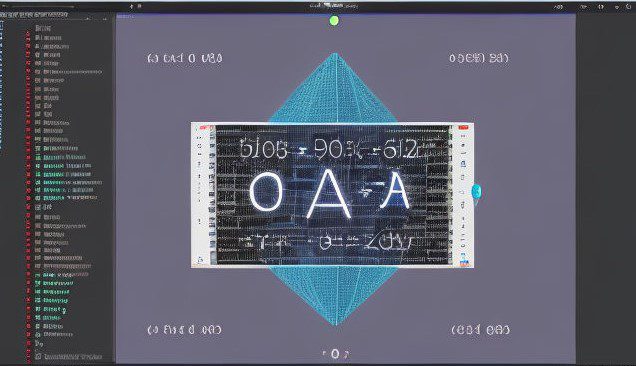Can AI Do Math?
can ai do math


Can AI Do Math ? , Mathematics has long been considered a quintessential discipline of human intelligence. From solving complex equations to unraveling the mysteries of the universe, mathematics has played a crucial role in shaping our understanding of the world. However, with the advent of artificial intelligence (AI), there has been a growing curiosity about the capabilities of AI systems when it comes to performing mathematical tasks. In this article, we will explore the question: Can AI do math?
Table of Contents
Introduction
AI, a field of computer science, focuses on creating intelligent machines capable of performing tasks that would typically require human intelligence. While AI has made remarkable progress in various domains such as natural language processing, image recognition, and decision-making, its abilities in the realm of mathematics have attracted significant attention.
Understanding Artificial Intelligence (AI)
Before delving into AI’s mathematical capabilities, it is essential to understand the fundamental principles of AI. AI systems are designed to mimic human cognitive functions, including learning, problem-solving, and decision-making. They achieve this by leveraging algorithms and computational models that process vast amounts of data to recognize patterns, make predictions, and derive insights.
AI and Mathematical Computation
Mathematical computation involves the manipulation and analysis of numerical data to solve equations, perform calculations, and derive mathematical relationships. AI systems excel at processing and manipulating large datasets, which makes them well-suited for mathematical computations. With powerful algorithms and computational capabilities, AI can handle complex mathematical operations efficiently and accurately.
AI in Mathematical Problem Solving
AI has proven its mettle in mathematical problem-solving as well. It can tackle a wide range of mathematical problems, from simple arithmetic calculations to more intricate calculus and statistical analysis. AI algorithms can quickly generate solutions, identify patterns, and optimize processes, making them invaluable tools in fields that heavily rely on mathematics, such as physics, engineering, and finance.
The Limitations of AI in Math
While AI demonstrates impressive mathematical capabilities, it is not without its limitations. AI systems rely on predefined algorithms and models based on past data. They excel at finding solutions within the boundaries of these models but may struggle with novel or unfamiliar problems. Math, on the other hand, often requires creative and abstract thinking, which can pose challenges for AI systems.
The Role of AI in Advancing Mathematics
Although AI may not replace mathematicians or solve all mathematical problems, it has a significant role to play in advancing the field of mathematics. AI can assist mathematicians in exploring complex problems, generating hypotheses, and providing insights that may lead to new discoveries. By automating certain mathematical tasks, AI frees up valuable time for mathematicians to focus on more intricate and abstract concepts.
Ethical Implications of AI in Math
As with any technological advancement, the use of AI in math raises ethical considerations. The reliance on AI for mathematical computations may lead to reduced mathematical literacy among individuals who heavily depend on AI systems. It is crucial to strike a balance between leveraging AI’s capabilities and maintaining human understanding and engagement with mathematics.
Conclusion
In conclusion, AI has demonstrated impressive mathematical abilities, ranging from computational tasks to problem-solving in diverse domains. While AI systems excel at mathematical computations and can assist in problem-solving, they have limitations when faced with novel or abstract mathematical problems. Nonetheless, AI’s role in advancing mathematics cannot be overlooked. By working in tandem with mathematicians, AI has the potential to unlock new frontiers and deepen our understanding of the mathematical universe.


FAQs
Q1: Can AI outperform humans in solving mathematical problems? A1: AI systems can solve many mathematical problems efficiently and accurately, but they may struggle with unfamiliar or abstract problems where creative thinking is required.
Q2: Is AI capable of proving mathematical theorems? A2: AI has shown promise in assisting with theorem proving, but the ability to autonomously generate new mathematical theorems is still an ongoing research area.
Q3: Will AI replace mathematicians in the future? A3: AI is unlikely to replace mathematicians entirely but can serve as a valuable tool in their mathematical endeavors, aiding in problem-solving and exploration.
Q4: Can AI enhance mathematical education? A4: AI has the potential to enhance mathematical education by providing personalized learning experiences, adaptive tutoring, and tools for visualizing complex mathematical concepts.
Q5: What are the future implications of AI in mathematics? A5: The future implications of AI in mathematics are vast. AI can help mathematicians tackle more complex problems, automate tedious computations, and uncover new mathematical relationships.
In this article, we have explored the capabilities of AI in mathematics. While AI systems can perform various mathematical tasks, they have their limitations and should be seen as tools to augment human intelligence rather than replace it. By embracing the potential of AI while preserving our own understanding and engagement with mathematics, we can pave the way for exciting advancements in the field.




